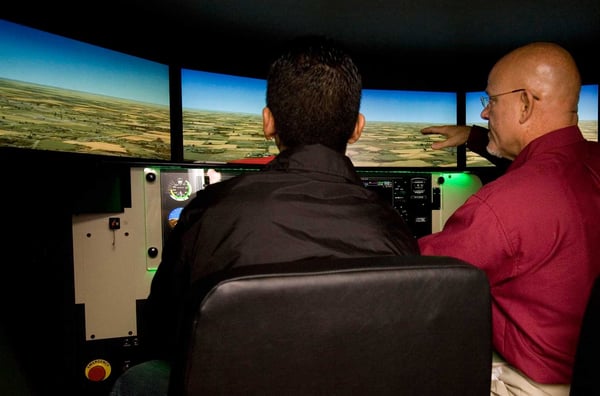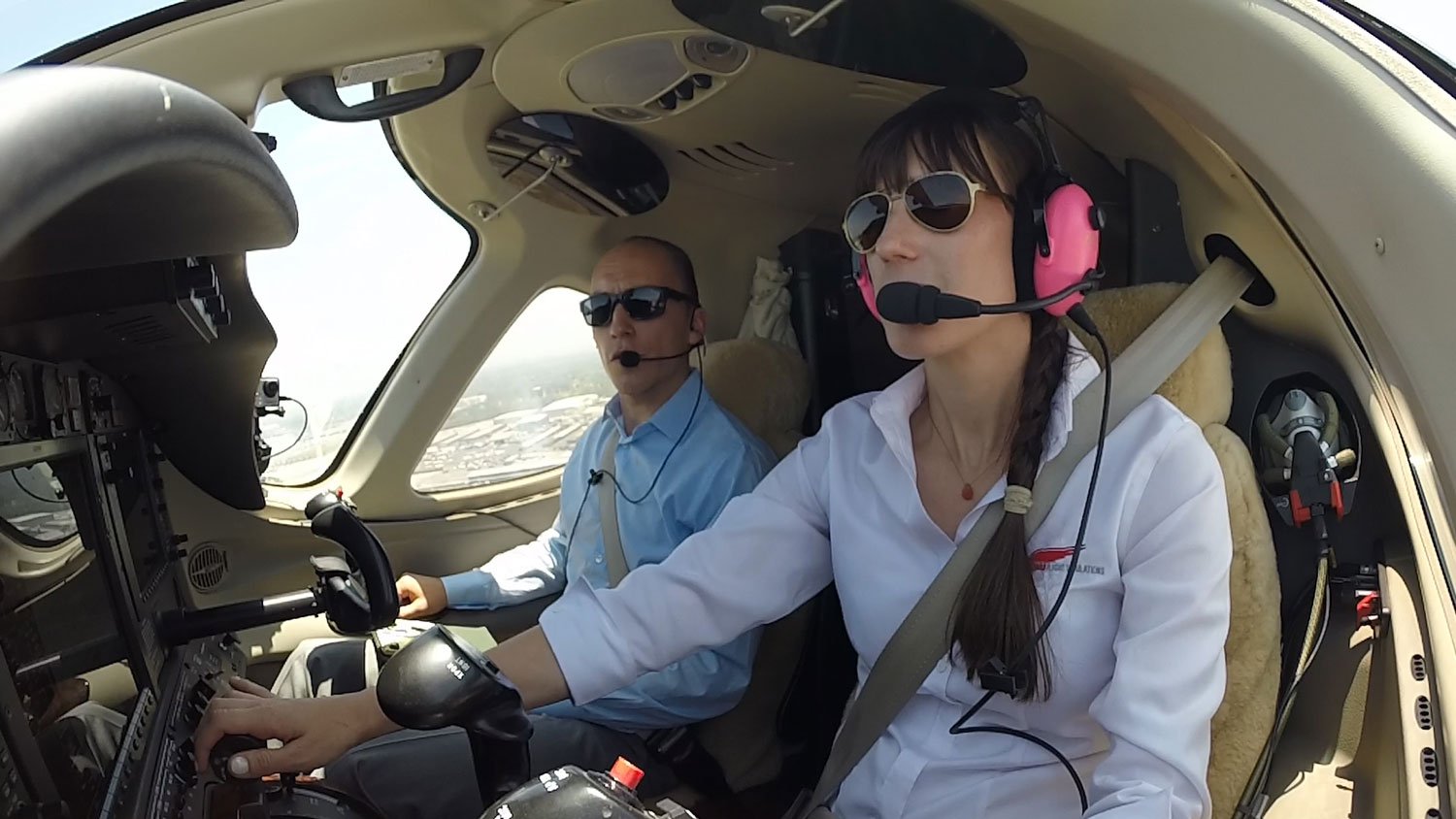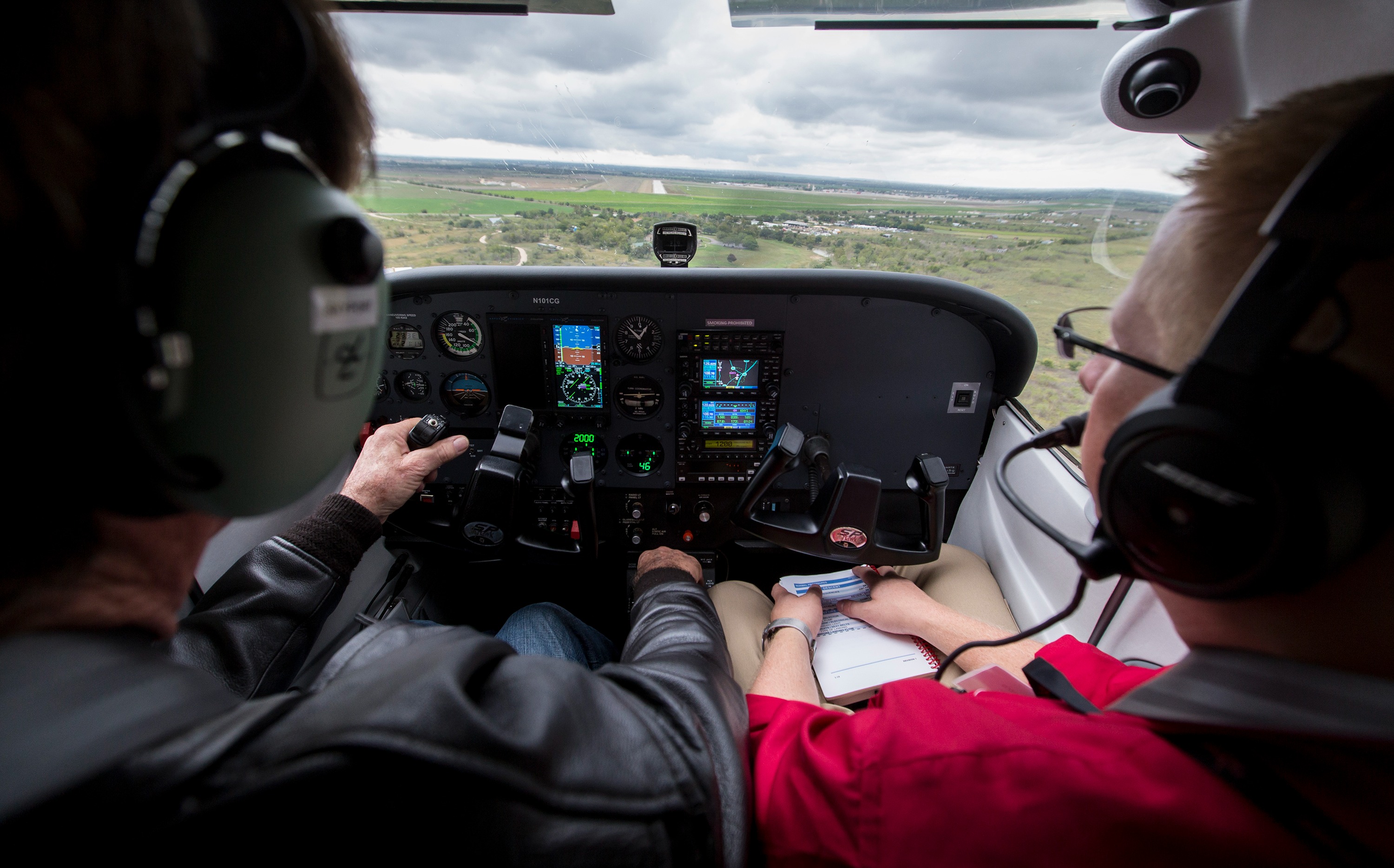The Importance of Flight Instructor Proficiency
For as long as I have been around flight training, I have heard folks refer to the Private Pilot Certificate as a “license to learn.” I’m sure you hear this one too. The premise is that a newly minted private pilot still has a lot to learn. While I agree with the idea, I also think it might be beneficial to clarify that the “learning” here is generally gained through experience, not necessarily additional instruction from a flight instructor. Experience is a critical need for a new private pilot, and a newly instrument-rated pilot for that matter. We accept these ideas as fact in our business. Everyone agrees that experience—when you gain it safely—is a great teacher. The constant striving after obtaining and maintaining proficiency is the goal of all reasonable, safety-conscious pilots. So, why don’t we care as much about proficiency when we become CFIs?
Is a newly minted flight instructor not in need of learning too? Additional experience? Of course they are! In fact, the new CFI might need this more than the new private pilot. The private pilot was trained and tested by doing the actual tasks that s/he eventually does solo after the checkride (yes, there are some extra items in there too). Conversely, a CFI is trained, literally, pretending to teach.
The FAA requires no practice teaching real student pilots during the CFI training footprint. The CFI practices teaching his/her flight instructor and then pretends the DPE is a student as the DPE chooses certain items to focus on during the gauntlet that is the CFI practical test. But if we are honest, the CFI practical test, despite its intensity, still skips a great deal of content. It has to do that; otherwise, you would be in the oral exam for a week. So, is the CFI certificate not also a “license to learn?”
I think we are missing an opportunity to teach new CFIs the value of maintaining and increasing proficiency. There is never a point where a pilot or instructor should sit back and say, “I’m perfect.” Well, they might say it; let’s be honest. However, that doesn’t make it true—quite the opposite. The CFI should be the example of proficiency-seeking. But what does that look like? How does the CFI stay proficient when s/he is spending most of the time telling another person how to fly? There are a couple of obvious strategies and maybe a few others that require a bit more effort to implement.
- First off, a CFI can and should be doing maneuver demos during flight instruction. They are an easy way to stay fresh and proficient while also helping students visualize how to perform maneuvers correctly. Students will appreciate their instructor's help in visualizing the correct sequence of events and conduct for a maneuver, as long as the instructor doesn’t spend their entire lesson flying the airplane. Remember, students are paying to get some flight time too!
Related Content: How to Be a Good Instructor in the Cockpit, Classroom, and Simulator

- Next, let’s talk about the obvious benefit of flight simulation technology. You probably already know that simulation is a great learning tool. However, that learning benefit extends beyond pilot certification and proficiency. A smart instructor will make use of canceled lesson time, gaps between lessons, and even schedule his/her own time, on purpose, to get in a simulator and increase personal proficiency in both the visual and instrument environments. Any flight school operator should be thrilled to comp instructor time in simulation equipment, as the result is a better, safer, more proficient workforce.
Related Content: How to Get Your Instructors to Use the Simulator
- There are a few other strategies for instructor proficiency that may be a bit less obvious. From time to time, aircraft have to move for maintenance and other reasons. To the extent that it is legal and efficient, we try to make every aircraft movement a revenue flight, but sometimes it is a good idea to incentivize instructors to move these aircraft for personal proficiency and practice. I always requested repositioning flights as an instructor. The activity didn’t pay me for my time, but if I was sitting in the office waiting for a flight that was hours away, I wasn’t getting paid anyway. I got to brush up on my flying skills without the pressure of a student judging me and expecting me to be perfect. Honestly, it was just nice to get back in an airplane and fly it solo every so often.
- Another somewhat obscure method of maintaining CFI proficiency involves renting an airplane yourself. Now I know what you’re going to say: “Those days are behind me! I don’t pay for airplane time anymore.” But, similar to what I just mentioned, that experience of simply flying yourself around is helpful both for maintaining proficiency and for remembering why you do what you do in the first place. Head off for the $100 hamburger on the weekend, or grab an hour in the pattern.
While I’m sure they exist, I’ve never worked with or for flight schools that didn’t offer deeply discounted rental rates to CFIs. Many schools just want you to cover the cost of gas. In most cases, these discounts are more cost-effective than flight club memberships. Every school will treat this issue differently, but it might be worth researching.
Related Content: 5 Smart Spending Tips for Your Flight School Startup
At the end of the day, a proficient CFI is a better mentor to all the flight students s/he trains. Discussing your proficiency plan and personal minimums with your students shows them that the need to continue learning is always there. The Private Pilot Certificate isn’t the only authorization that doubles as a “license to learn.” You could easily say that all flight certifications fall into that category, including the Certified Flight Instructor Certificate.
Fly safely, my friends!
Eric Crump is Program Director of Aerospace at Polk State College and Business Principal at Red Eye Aviation. For more ideas on improving the quality of flight instruction, check out Eric's presentation from Redbird Migration 2020.
Share this
You May Also Like
These Related Articles

5 Concepts in Business That'll Improve Your Pilot Proficiency Plan

What Does a Proficient Pilot Look Like?
